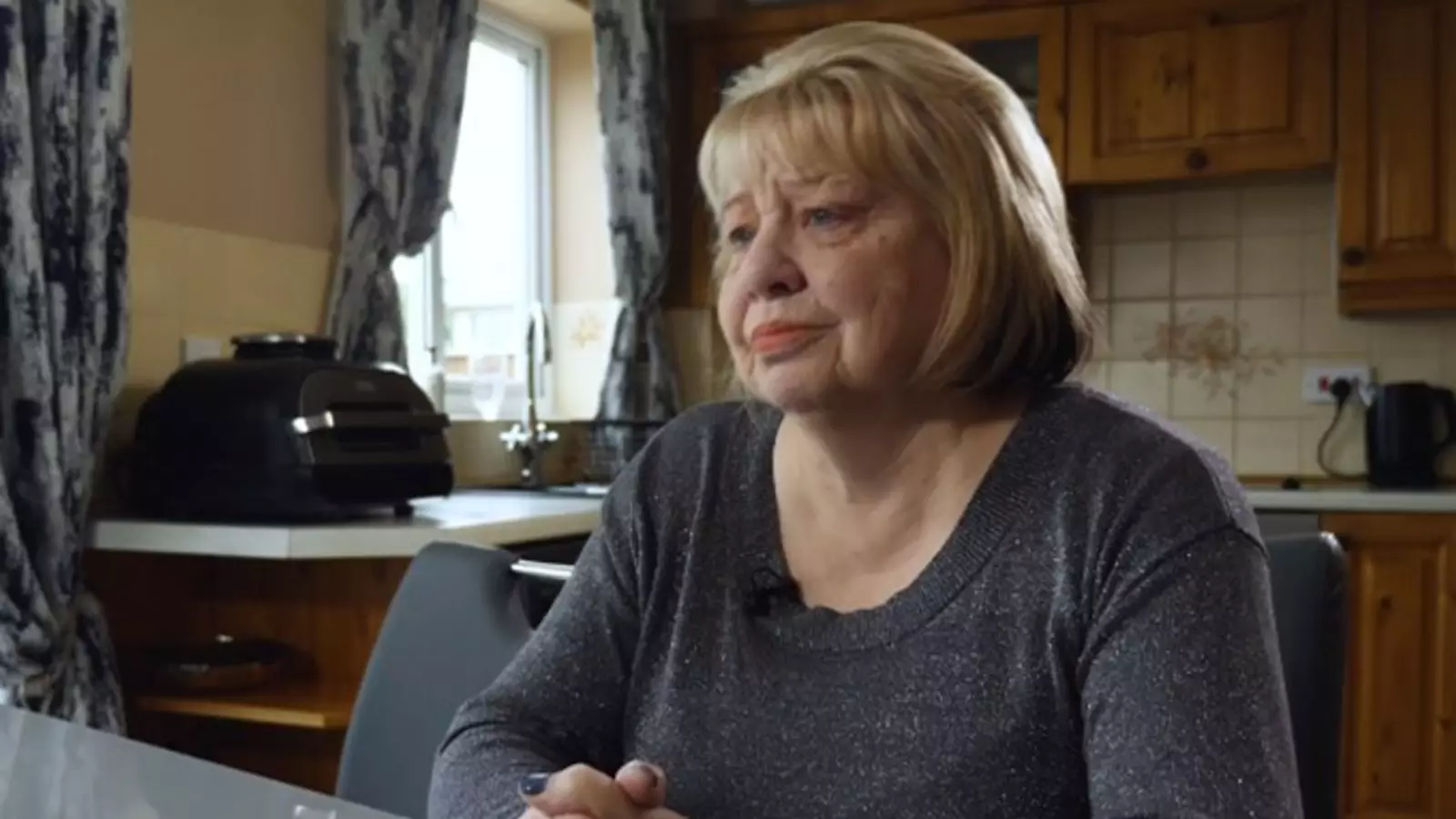Diane Edwards, still grappling with grief, recently shared her deeply personal experience with Sky News, just ten days after the passing of her ex-husband, Mick. The couple had faced harrowing challenges as Mick battled terminal bowel cancer, an ordeal that brought not only emotional anguish but also significant shortcomings in the healthcare system. As Diane recounts her memories of those unbearable nights spent caring for Mick, she illustrates the heartbreaking transformation of a loved one from a vibrant partner to a frail individual in need of constant assistance. “Sometimes, I’d put him back into bed and the blood would be pouring out,” she reflects, a brutal reminder of the reality that the person she once knew had all but disappeared.
Mick’s condition deteriorated due to a combination of his terminal illness and a complicated healthcare apparatus that left him without adequate support. As a blind individual, he required help to navigate his environment, but the assistance provided often proved insufficient. Diane’s frustration is palpable as she describes the inadequacies of the care services, which lacked not only the necessary medical training but also the compassion and attentiveness essential for someone in Mick’s condition. “They weren’t medical carers. He deteriorated even more, and I was on my knees. I was at breaking point.”
Caring for someone with stage 4 cancer is not only physically exhausting but emotionally draining as well. Diane’s own health began to suffer under the weight of her responsibilities. “I never slept,” she admits, highlighting a common plight among caregivers who often neglect their own wellbeing while prioritizing their loved ones. She portrays a vivid image of helplessness, feeling as though she was descending into crisis herself. The emotional and psychological toll of her situation culminated into a struggle she never anticipated; a stark reminder of the sacrifices caregivers make.
Despite Mick’s medical needs, diagnoses were overlooked, leading to a cascade of challenges. After a significant episode that required hospitalization about a year ago, Mick was released with a fast-track care package, the NHS Continuing Healthcare (CHC). Designed to support those with extensive health and social needs, the process was intended to alleviate the burden on families. Yet, just months later, Diane was shocked to discover that a virtual assessment concluded Mick required social care rather than palliative care, a decision that seemed unconscionable given his deteriorating condition.
The subsequent turmoil this decision caused in Diane’s life cannot be overstated. Forced to relay bad news to Mick, she watched as his emotional state plummeted. “He got upset over it. He didn’t eat for a day because of it,” she recalls, emphasizing the fragility of the situation. This momentisterial lack of understanding and support within the healthcare system left Diane feeling abandoned. “There’s nothing out there for you for help,” she lamented, calling attention to systemic gaps that often plague families facing similar crises.
The NHS Shropshire, Telford and Wrekin trust offered their condolences but indicated that assessments followed a national framework, allowing for flexibility in how evaluations are conducted. However, discrepancies continue to exist across the country, often leading to a “postcode lottery” situation concerning care eligibility. A recent study by the Nuffield Trust revealed shocking variances in approval rates for CHC, exposing a troubling reality where geographical location can dictate the level of care available to individuals in dire need.
Diane’s story and the struggle of families like hers highlight urgent calls for reform in social care. Amid systemic failures and an apparent lack of understanding surrounding CHC assessments, experts advocate for comprehensive changes to develop a more compassionate framework that prioritizes individual needs over administrative conveniences. The Nuffield Trust’s Rachel Hutchings elaborates on the increasing pressures within the social care system, underscoring that while reforms have been discussed, time is running out for those in immediate need.
Eventually, after months of advocacy, Mick’s CHC funding was reinstated, but not without a strenuous intervention from a social worker and a local GP. This belated resolution did little to alleviate Diane’s concerns concerning the end-of-life experience for patients like Mick. Given the severity of his situation and the emotional toll it had taken on him, Diane firmly believes that had assisted dying been an option, Mick would have chosen that path. The implications of her words resonate powerfully, shedding light on the urgent discussions surrounding end-of-life choices, suffering, and the healthcare system’s responsibilities.
As Diane navigates her grief, her experience beckons a critical examination of the services that support terminally ill patients. The journey she has shared is not just a story; it is a clarion call for change in an often-overlooked segment of the healthcare system—one that strives to treat not just the illness, but the person as a whole.


Leave a Reply